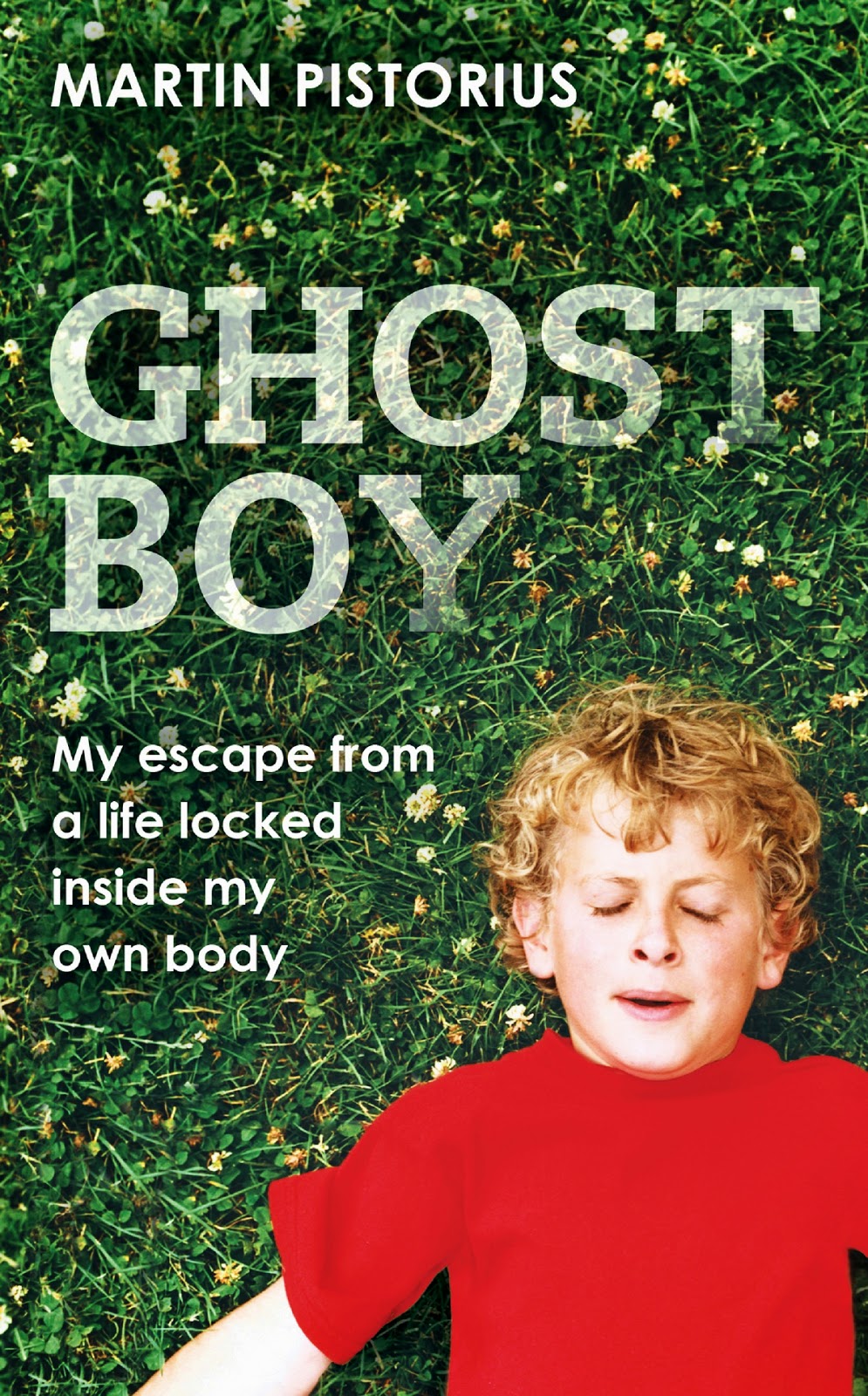
- U.S. Release Date: November 12, 2013
- Page Number: 304
- Genre: Nonfiction
- U.S. Publisher: Thomas Nelson Publishing (Harper Collins)
I’ve recently become an NPR podcast junkie and I’m really loving their new podcast Invisibilia, about “the intangible things that shape human behavior.” Each week the hosts tell stories of people who have rare psychological or neurological experiences–on of their first stories is of Martin Pistorius, a South African man who spent six years trapped in his own body. After I heard this story, I had to know more and was happy to see his memoir was on Scribd.
When Pistorius (who as far as I can tell is not related to the convicted South African athlete Oscar Pistorius) is 12-years-old he develops a degenerative brain condition that leaves him mute and unable to move. Doctors couldn’t diagnose him and his parents were told he had the mind of a 3 month old and to take him home to wait for him to die. Only Martin doesn’t die and a few year later his mind comes back, but not his motor skills or speech. He can’t tell anyone he’s back and he lives like a ghost boy as the people around him assume he isn’t comprehending what he sees. It takes six years for his parents to finally figure out he was aware and the book is his reflections on his time as a ghost boy and his journey learning how to communicate using technology.
This book tells a really incredible story. Martin becomes well known in the Augmentative and Alternative Communication (AAC) community and it’s interesting to see all the people he meets as he goes to conference. It can be a little nightmare inducing too. One of his friends was paralyzed from the eyes down from a stroke at the age of twenty-five.But it’s amazing the amount of technology and work being done so everyone has a voice.
The parts I found most interesting are the parts where he tells the things he sees people do when they think no one is looking. He observes many of his caregivers mostly at their worse, but also some at their best.
The writing and narrative style of the book left a little to be desired. It’s in first person, which is good for understanding what Martin is feel at certain, but it doesn’t have a lot of context I like in my nonfiction. Martin’s memories only begin when he gains his awareness so he doesn’t even really know who was as a child. He also never gets into any of the science-y stuff I was curious about how any of this is possible.
I would give this book a huge trigger warning for abuse. At first I thought Pistorious was going to glaze over the negative aspects of his experiences, but there is a chapter that goes into the abuse he suffered at the care centers he stayed at while his parents were at work. I felt like the chapter was really honest, but also incredibly heartbreaking and awful. I do wonder if there was ever any legal action taken against the center.
I kind of go back and forth on the end of this book, which focuses on his relationship with his wife Joanna–who the book is dedicated too so I don’t think this is a spoiler. I’ve been reading a lot of these real life “love stories” lately to contrast with romance novels and I like how real love stories in real life are always a lot more complicated. Basically they talk on Skype, meet twice and then he moves to the UK to marry her. The relationship moves so fast in the book it was hard to connect with them emotionally.
I am kind of curious a to why there wasn’t much talk about this story before the Invisibila podcast. A quick Google search will show dozens of news stories about Martin, but they all came out within the last few weeks even though this book released overseas in 2011. I’ll be curious to see if being on NPR changes his life any, because at the end of the book he is a freelancer and house husband.
Ghost Boy tells a remarkable story and I think it can be read in a lot of different ways. It’s a story about technology, communication, disability, empathy and family relationships. It’s a pretty quick read and I think it has some great YA crossover appeal because Martin goes though so much of this as a teenager and young adult,


Okay, is it just me or does the UK cover (above) for this cover looks like the poster for Boyhood ?
I’m a lifelong reader who started blogging about YA books in 2011 but now I read in just about every genre! I love YA coming of age stories, compelling memoirs and genre bending SFF. You can find me talking all things romance at Romance and Sensibility.